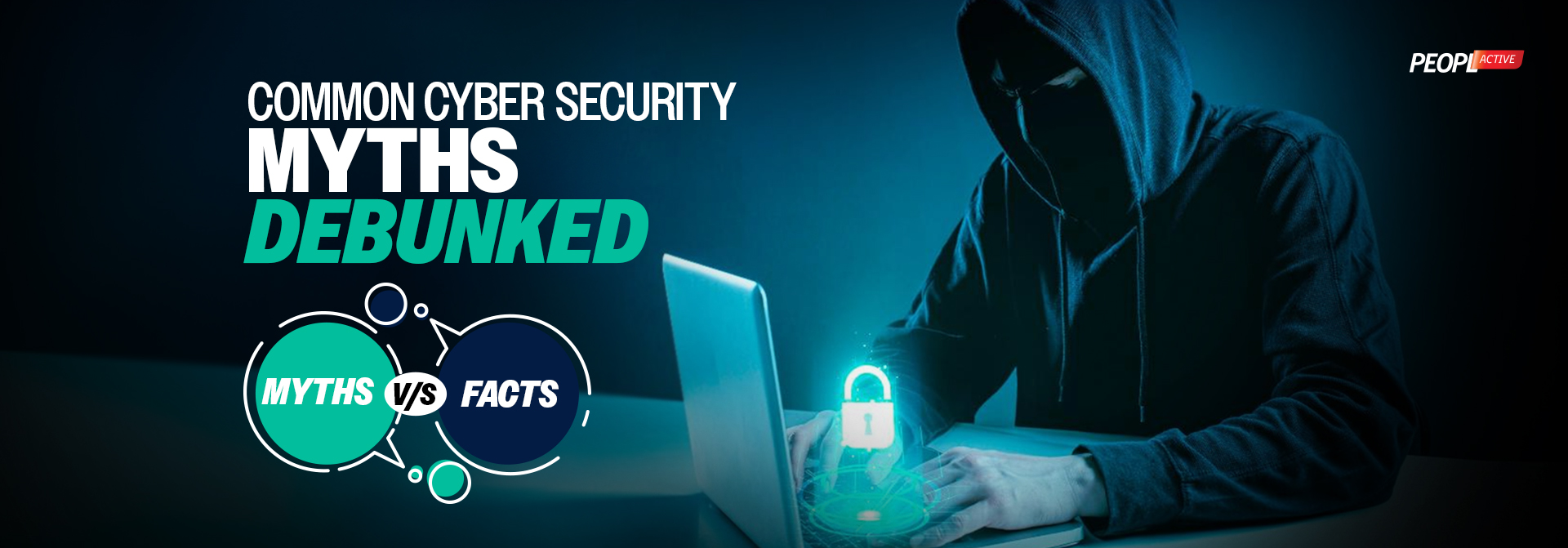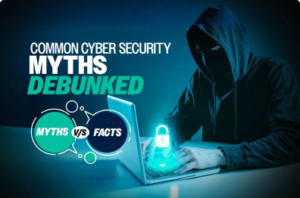Cybersecurity now ranks as a major issue for companies of all kinds in the hyperconnected world of today. Cybercrime strategies change with technology; hence companies must be alert and aware since they affect their strategies as well. Unfortunately, a fog of incorrect information permeates the field of cybersecurity, which causes individuals to either ignore necessary safeguards or develop a false sense of security.
The purpose of this blog is to clarify the realities of protecting your company from online attacks and to set the record straight on some of the most common myths about cybersecurity. Discover why a dedicated cybersecurity consultant can address all your doubts and questions.
First myth: “I’m Just a Small Business; I’m Not a Target.”
One of the most common misunderstandings in the field of cybersecurity is that small companies are free from cyberattacks. Many business owners think that hackers just target well-funded big companies. This view, though, is dangerously false.
Reality:
Cybercrime often targets small businesses precisely because they typically have fewer security systems in place. In fact, Verizon research shows that 43% of cyberattacks are directed at small firms. This data highlights how hackers view small businesses as low-hanging fruit. Given that many smaller firms lack robust cybersecurity, they are appealing targets and should seek cybersecurity consulting services to strengthen their defences and reduce threats.
What Action Should You Take?
Investing in cybersecurity consulting services can enable you, as a small business owner, identify your weaknesses and apply required security measures. A qualified cybersecurity consultant ensures that you are not just another statistic by tailoring a security strategy to your specific needs. This guarantees that you are protecting yourself from potential threats.
Second Myth: “I Just Need Antivirus Software.”
Another prevalent fallacy is that running antivirus software will keep your company free from online attacks. Although a must-have weapon in your security toolkit, antivirus products are not a one-stop fix.
Reality:
Antivirus programs primarily search for and eliminate known viruses. However, they often struggle against more modern, sophisticated threats like phishing scams, ransomware, and zero-day attacks. Relying solely on antivirus software could leave your company vulnerable.
What are your options?
A multilayered security strategy is needed for protection. Training employees, backing up data, installing firewalls and intrusion detection systems, and updating software are examples. Cybersecurity consulting services may help create a multi-level security plan.
Third Myth: “Cybersecurity is Only the IT Department’s Responsibility.”
Because of the widespread notion that the information technology department should be the sole one responsible for cybersecurity, there is a worrying gap in the level of expertise and preparation across the entire company.
Reality:
Each and every worker has a portion of the duty for ensuring digital security. According to data provided by the Cybersecurity and Infrastructure Security Agency (CISA), human error is responsible for around 90% of the incidents of all data breaches. Workers unintentionally damage security by engaging in behaviours such as clicking on links that lead to phishing websites or using passwords that are too simple to guess.
What Exactly You Can Do?
The establishment of a culture that takes cybersecurity seriously becomes the highest possible priority. It is feasible to educate staff members about best practices and potential risks by providing them with frequent training sessions that are coordinated by a cybersecurity consultants. Because of this, it is ensured that everyone is aware of their role in defending the organization from assaults that occur online.
Fourth Myth: “I Don’t Need to Worry About Cybersecurity on Mobile Devices”
Some people think that mobile devices are naturally safe and do not call for particular security measures since they are depending more and more on them for corporate activities.
Reality:
Cybercriminals find perfect prey in mobile devices. Sensitive data can be exposed by malware, rogue programs, and insecure Wi-Fi connections. The emergence of mobile malware raises serious issues since hackers frequently take advantage of the confidence people have in their mobile devices.
What Can You Do?
Starting mobile security initiatives is absolutely vital. Urge staff members to routinely upgrade their devices, set strong passwords, and turn on biometric authentication. Working with a cybersecurity specialist will also help you to develop a mobile security strategy including best practices for using tools in the office.
Fifth Myth: “Using Public Wi-Fi is Safe if I Have a VPN.”
Although public Wi-Fi networks are handy, many consumers think that having a Virtual Private Network (VPN) ensures their security on these networks alone.
Reality:
A VPN does not make public Wi-Fi totally safe even as it encrypts your internet traffic. Cybercriminals can still take advantage of weaknesses; hence users should exercise caution to possibly reveal private data.
You can do what?
Urge staff members not to, whenever at all possible, access sensitive data via public Wi-Fi. If kids must use public networks, make sure they are following best practices—that is, turning off sharing capabilities, utilizing secure connections (HTTPS), and considering the websites they visit.
Sixth Myth: “Cybersecurity is Just About Protecting Against External Threats”
Many businesses mistakenly believe that cybersecurity only addresses external threats, causing them to overlook potential dangers within their own organization.
Reality:
Insider threats can be just as damaging as external attacks, if not more so. Employees, whether through negligence or malicious intent, can inadvertently compromise security. According to IBM research, insider threats can cost companies up to $11 million per incident.
To mitigate these risks, establishing strong internal policies and monitoring mechanisms is essential. Regular security evaluations by a cybersecurity consultant can help identify vulnerabilities and reduce the dangers posed by insider threats.
PeoplActive is a company that specializes in providing businesses with the tools they need, to operate in a safe digital environment. Our highly qualified workforce is committed to providing you with top-tier cybersecurity consulting services that are customized to meet your specific requirements. With PeoplActive as your partner, you can negotiate cybersecurity’s complexity and protect your firm from external and internal threats.
In summary,
Developing a strong security posture requires busting six common cybersecurity fallacies. False information might induce complacency that puts your firm at risk from cyber threats. Understanding the truth behind these tales and responding early may help you protect your firm from cyber threats.
By use of cybersecurity consulting services, your company can get the knowledge and tools required to properly address cyber vulnerabilities. A cybersecurity consulting service professional may help with implementing best practices, creating a security plan, and promoting team understanding of cybersecurity challenges.
In a world where online & offline threats are constantly evolving, staying prepared and vigilant is essential. By addressing common misconceptions and taking proactive steps, you can protect against potential risks and create a safer digital environment.

















